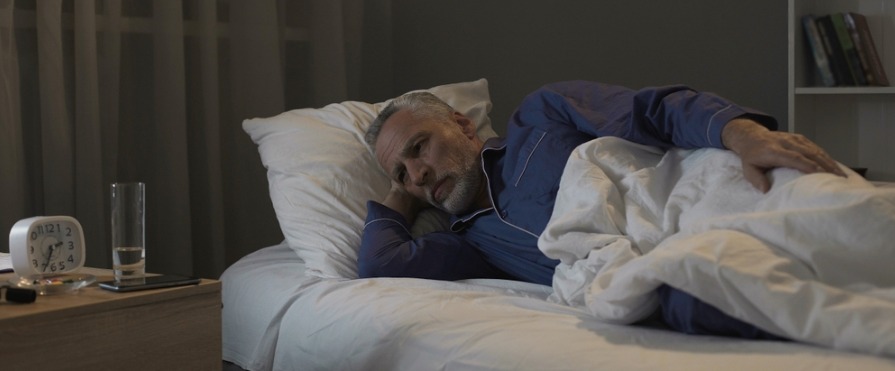With sleep being such an important aspect of our daily lives and health, it’s increasingly common to come across various posts and articles about good and bad sleep habits. However, while some of these news pieces are backed up by a good amount of credible research, other hot topics have been warped into news, when in fact they’re false or misleading.
In this post, we have highlighted a number of common sleep myths (as the titles) that you will likely come across in various pieces of media. We then go on to explain what you should actually be taking from them.
1. Some people are naturally bad sleepers
Sleeping is a natural part of a healthy lifestyle, so absolutely anyone and everyone should be able to sleep well – all it takes is finding the right sleeping environment for your mind and body, as well as eliminating anything that could be causing you to sleep poorly.
If you find yourself regularly struggling to drift off to sleep for the night, there are many changes you can make to improve you sleep routine. From optimising your sleeping environment to changing up your routine in the hours leading up to your bedtime – don’t put it down to being a ‘bad sleeper’ and make the necessary changes to improve your sleep quality.
2. Everyone needs eight hours of sleep
Eight hours of sleep is the recommended average, but while some people find that eight hours sleep is just right for them, others may require more and others less. What’s more important is to monitor how alert and well rested you feel in the morning and from that, gauge how much sleep is right for you.
Top Tip: It is not recommended that you live on less than six hours sleep a night frequently, as this can lead to health conditions such as heart disease and strokes, as well as increasing your risk of stress and high blood pressure.
3. You should catch up on sleep at weekends
When you fail to get enough sleep throughout the week, you might be tempted to sleep in at the weekend to catch up. However, this is what’s known as sleep bulimia and can have a negative impact on your overall health. What’s healthier for your body is to develop a routine that allows you to go to sleep at the same time every night and wake up at the same time every morning – inclusive of both weekdays and weekends.
4. You will sleep better after a drink or two
It’s true that a couple of glasses of wine can send you off to sleep, but there’s absolutely no truth in saying that it will help you to sleep better. In fact, you’re much more lightly to endure a night of fragmented sleep, drifting in and out throughout the night, only to feel tired and groggy the next day because of those couple of drinks before bed. Alcohol dehydrates.
If you’re hoping to fit in a couple of drinks with friends in the evening, try to drink up a couple of hours before you hit the hay, to allow the alcohol to wear off before heading to sleep. Also drink plenty of water too.
5. Napping in the day is bad for you
Many people believe that napping in the day can badly affect your overall health, but that’s simply not true. It isn’t recommended that you fit in a nap too close to bedtime, as it can affect you easily you get to sleep at night, as well as how well you sleep throughout. However, an early enough nap can prove beneficial if you had struggled to sleep the night before – you’ll find yourself much more alert and awake throughout the day and ready to tackle the rest of the day ahead before sleeping soundly later on in the evening.
Try to limit your naps to 20-30 minutes, to allow your body to rejuvenate without falling into a deep sleep.
6. Stay in bed when you’re restless
People who find themselves tossing and turning at night, tend to stay in bed in the hope that they’ll eventually drift off to sleep. However, experts suggest that getting out of bed and making changes to your sleeping environment could help you to fall asleep quicker.
That’s because the more you tend to toss and turn, the more likely you’ll associate your bed with not being able to sleep. By getting up and spending a few minutes tidying up the space or making it a little more relaxing, you’ll instantly feel calmer and more relaxed, enough to drift off to sleep.
7. Make the most of 5 more minutes by hitting snooze
Too many of us fall into the trap of hitting the snooze button countless times in the morning, but those few minutes extra in bed really won’t make a difference. In fact, it’s much more beneficial to wake up to your initial alarm and accept that it’s time to get up, to avoid the negative feelings that come when the alarm repeats and to get started with your day.
Health experts recommend that instead, we simply switch off our alarm and throw open the curtains as soon as possible, to kickstart the day with some natural light.
If you’ve been treating these common sleep myths as gospel for a while, then it’s time to make some changes, in order to reap the benefits of a healthy sleeping routine.
What’s your Slumber Number?
If you are wondering if your sleep times fall above or below the UK average* then click on our FREE and easy to use sleep calculator here now.
‘* Statistics taken from our 1,000 person UK Sleep Survey
